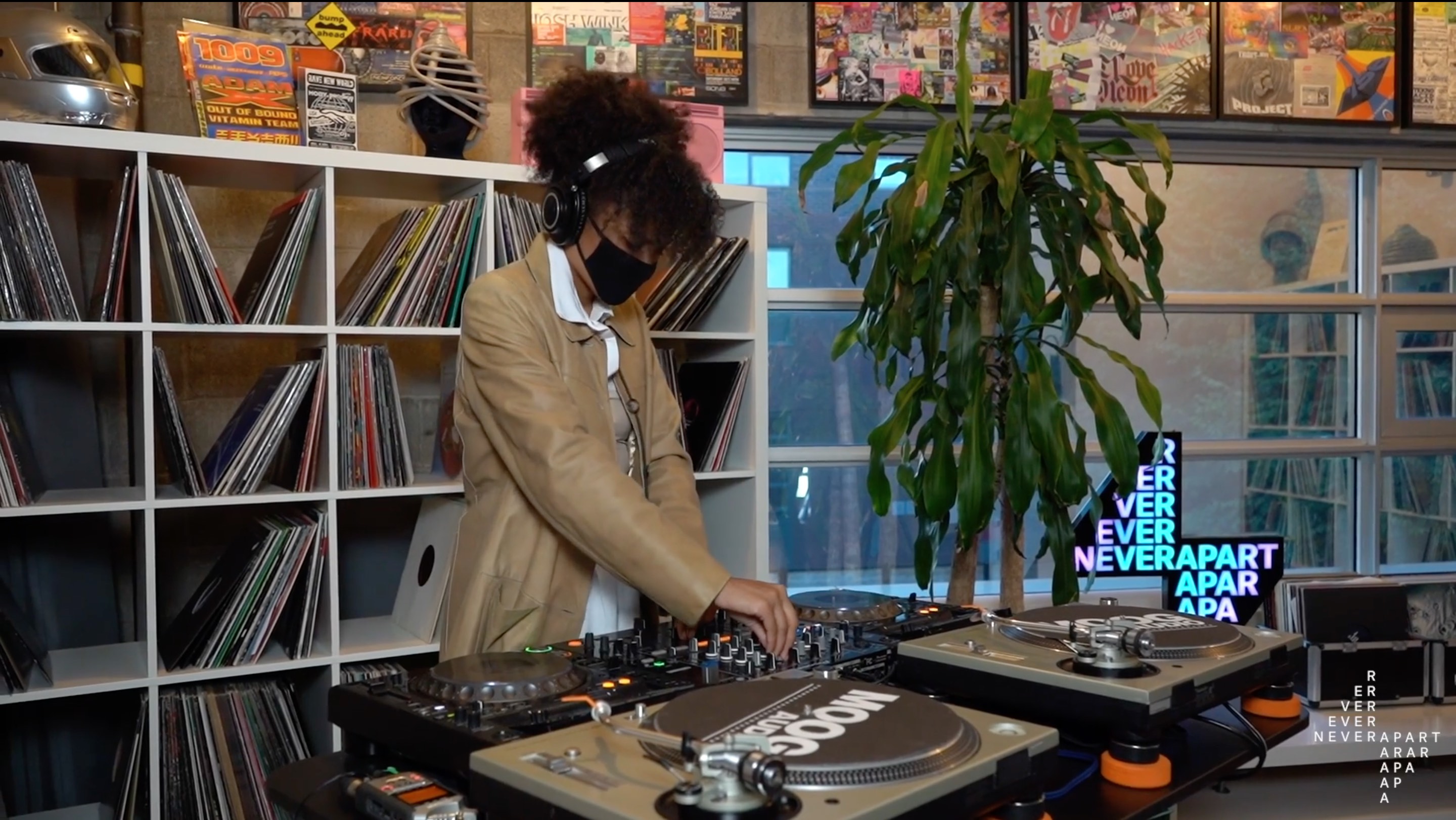Never Apart’s Equinox 2020 festival, held on Sept. 26, was a one-day digital celebration of BIPOC creators across Canada, merging music, art, ecology, and food under the theme of “Cultivate.” Never Apart is a Montreal-based nonprofit focussed on bringing about social change and spiritual awareness through organizing culture and music programs. Equinox 2020 featured Q&As, a cooking demonstration, live music sets, and a mini-documentary. The event was a triumphant educational experience, demonstrating unity between many BIPOC creators celebrating their culture and identity.
The celebration kicked off with a discussion about the resurgence of two-spirit identities in Indigenous communities. Dayna Danger, a two-spirit Metis/Saulteaux/Polish curator and artist, spoke with Jade Konwataroni, a nursing student at the University of New Brunswick from the Mohawk territory of Kahnawake, about the importance of preserving Indigenous cultures in a colonial country.
Konwataroni discussed the challenges that she faces in balancing her queer and Indigenous identities, as some elders in her community have internalized colonial homophobia. While it is not always easy, Konwataroni has come to value self-acceptance while finding people in her community that respect her for who she is.
“When I figured out that I was going to […] be exactly who I am, […] Indigi-queer, two-spirit, […] that’s when everything started to […] pick up, and I cultivated lovely relationships,” Konwataroni said.
Danger and Konwataroni also discussed the land-based practice of hide tanning: By changing the pH level of an animal’s skin to prevent it from rotting, it can later be used to create leather. Konwataroni explained that practicing hide tanning has fostered in her a greater respect for all animals. The practice has also allowed Konwataroni to connect with other two-spirit people in her community.
“I struggled a lot with […] who has the right to […] tan hide,” Konwataroni said. “As Indigenous people, I think we all have the right to learn how to do something even if we weren’t taught it by our grandparents [….] All the two-spirit people coming out and doing it is really inspiring […] and it makes it more approachable.”
As the theme “Cultivate” suggests, Equinox 2020 was aptly concerned with cuisine, and the connection between food preparation and land-based practices. Jean-Philippe Vezina, a Quebecois vegetable grower of Haitian descent, took the audience on a virtual tour of his garden, Les Jardins Lakou. Vezina founded Les Jardins Lakou in an effort to reconnect with his Haitian heritage and help other Québécois of Haitian descent to learn about their agricultural and culinary traditions.
Later that afternoon, Marlene Hale, also known as Chef Maluh, demonstrated how to cook traditional West Coast First Nations cuisine. Hale is a chef, educator, and member of the Wet’suwet’en nation. She began the cooking demonstration with a drumming introduction to celebrate the beginning of the harvest season. Hale proceeded to cook a delicious meal of cedar plank salmon, wild rice, grilled vegetables, and bannock focaccia with a side of Labrador tea.
With Equinox 2020 occurring a few days before Orange Shirt Day, an event designed to bring attention to the history of the residential school system in Canada, it was fitting that interdisciplinary artist Adrian Stimson had the opportunity to discuss his pieces. Stimson’s pieces, which use found materials, expose the experiences of genocide, loss, and resilience of the Indigenous peoples coerced into Canada’s residential schools. A member of the Blackfoot nation, Stimpson was forced to attend residential school three times. In an installation entitled “Old Sun,” Stimson placed a blanket of Buffalo fur on the ground and covered it with a tipi made from steel bars resembling a prison cell. This piece highlights the ways in which colonialism has oppressed and demonized Indigenous cultures and values.
Equinox 2020 was an educational multidisciplinary exploration of Indigenous cultures and identities. The event provided a positive and inclusive atmosphere to celebrate a diverse range of cultural beliefs and practices. While platforming challenging topics, Equinox 2020 focussed on the resilience and accomplishments in the BIPOC community in Montreal.
The event is archived on Facebook and available for anyone to re-watch free of charge.









